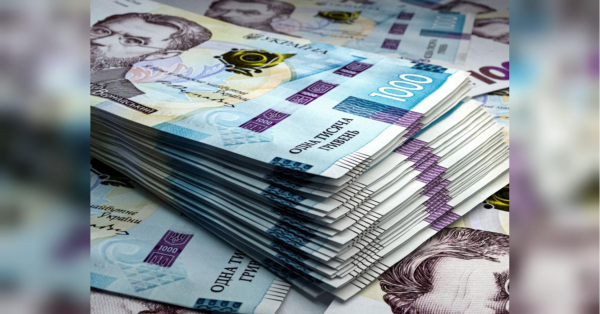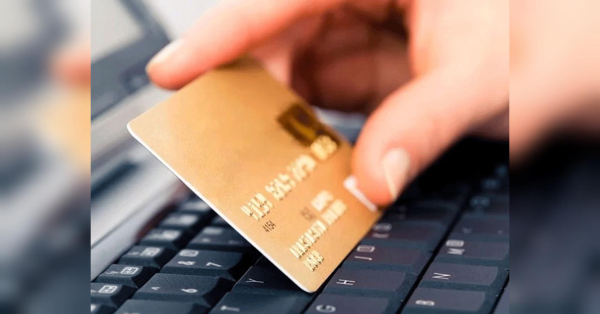
Money laundering schemes using “drop” card account holders have become widespread in Ukraine. Even the introduction of restrictions on card transfers in 2024 did not combat this phenomenon, and up to 20% of new cardholders in 2025 may participate in these schemes.
VIDEO OF THE DAY
This was reported by Anna Dovgalska, Deputy Chairman of the Board of Globus Bank . According to her, since the beginning of the year, about 100 thousand compromised cards have been discovered, and the total volume of transactions through drop schemes may reach tens of billions of hryvnias.
According to the banker, participants in such schemes are, in fact, intermediaries between criminals and the financial system. However, such “intermediation” is complicity in illegal activities, because illegally obtained funds are “laundered” or converted into cash through drops. And a potential source of an increase in drops may be the increase in the number of issued payment cards, which, according to the results of the first quarter of 2025, in Ukraine became 4% more than at the beginning of the year — 137.5 million cards.
Also, the spread of drop schemes is closely related to the development of p2p transfers, so since 2023, the number of person-to-person transfers, which are limited in banks, has sharply increased in Ukraine. Thus, from June 1, 2025, the transfer limit for medium and low-risk clients is UAH 100,000 per month, and for high-risk clients – UAH 50,000 per month.
ADVERTISING
The banker talked about the most common drop schemes:
1) card rental – the owner gives the criminals the card, PIN code and access to online banking;
2) money “mule” – the drop withdraws money from the card and transfers it to fraudsters;
3) “one-time” drop – a person transfers a card or access to it once, receives a small reward and no longer participates in the scheme.
As for the social “portrait” of a typical drop, according to Anna Dovgalska, these are most often young people aged 18 to 25, most of whom are students, pensioners, unemployed, etc. According to her observations, about 60% of droppers are looking for “quick money” due to financial difficulties, 25% are unaware of the legal consequences of complicity in a crime, and 15% of citizens act under manipulation or pressure, sometimes unconsciously.
ADVERTISING
Anna Dovgalska told us what signs can be used to identify involvement in drop schemes:
- offering “easy money” for simply providing a card or account;
- lack of a clear explanation of why access to the account is needed;
- the offer comes on social networks or messengers;
- lack of any checks: communication only online, without official documents.
“All these signals indicate that this is not about legal earnings, but about a fraudulent scheme,” she emphasizes.
The banker also focused on the possible consequences for drops:
1) blocking accounts – the bank has the right to freeze the card if it sees suspicious transactions;
2) legal liability – the drop actually helps to launder money, which is punishable by law and under Article 209 of the Criminal Code of Ukraine, you can get up to 12 years in prison;
3) getting on “black lists” – even if a person avoids a criminal case, banks can add them to their internal databases of risky clients, which means problems with loans, deposits, and even opening accounts in the future;
4) reputational losses – it is practically impossible to get out of this status, and the only chance is to voluntarily contact the police and cooperate with the investigation, but even then the trust of financial institutions is restored very slowly;
5) future strict restrictions – it is planned to create a state Register of Drops. Being included in it will mean an official ban on using financial services. Currently, a relevant draft law is being prepared for consideration by the Verkhovna Rada, which regulates the liability of droppers and regulates the creation of the “Register of Drops.”
ADVERTISING
And finally, the expert advises those who have already fallen for the scammers' hook and are aware of the terrible consequences for themselves not to keep quiet about the problem, but to act according to the following algorithm:
- immediately stop any interaction with scammers;
- notify your bank that your card details are being used illegally;
- Contact the police: this will give you a chance to be considered a victim, not an accomplice.
— Take care of the future: do not be tempted by deceptive promises of easy money, because they often have very serious consequences. Instead, it is highly desirable to form your own financial discipline, which should consist primarily of awareness of fraudulent schemes and caution in using your own data: trust in acquaintances or loved ones may not always be justified, — concluded Anna Dovgalska.
Previously, “FACTS” reported on what actions are best not to take to avoid having your bank account closed.






